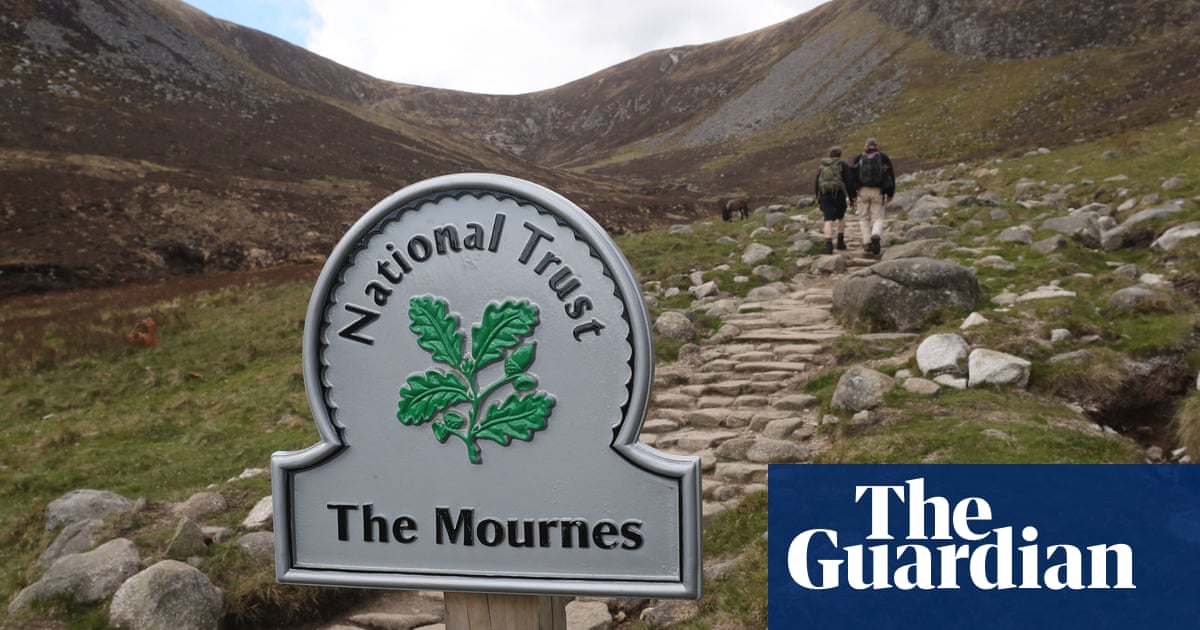Attack on ‘woke’ charities has backfired, campaigners say - 4 minutes read

The National Trust was called ‘Marxist’ and politically correct. It subsequently reported record numbers of new members. Photograph: Niall Carson/PA Charities Attack on ‘woke’ charities has backfired, campaigners say Exclusive: Rightwing campaign prompted charities to defend their work, leading to rise in public support
Campaigners said they have faced an increasingly hostile political environment – 78% said they felt politicians were hostile to civil society campaigning, up from 63% the previous year. A majority said attacks by politicians and the media were a threat to charities’ right to speak out and campaign.
However, the survey also found the attacks persuaded many charities to re-examine their mission and refocus on campaigning, and had revealed heartening public support for social activism. A third of charities said they were now “more likely to speak out”.
“The high-profile attacks on charities over the past few years seem to have backfired. Many have responded by asking themselves if they are still honouring their core mission by speaking out and concluded that, in fact, campaigning is not just their right but their duty,” said Sue Tibballs, the chief executive of the Sheila McKechnie Foundation.
A number of charities, including the National Trust and Barnardo’s, have faced coordinated attacks by backbench Conservative MPs for supposedly “political” or “woke” stances on such as racism and inequality at odds with their core charitable mission, The MPs argued the charities’ role was to provide services, not engage in social issues.
The National Trust was called “Marxist” and politically correct for publishing a report highlighting the slave trade links of some of its historical properties, the race equality thinktank Runneymede trust was accused of having a “political agenda,” and the children’s charity Barnardo’s of promoting “ideological dogma”.
All three were investigated by the Charity Commission after the backbench “Common Sense” group of Conservative MPs complained they had breached charity laws. In each case they were cleared of wrongdoing. The National Trust subsequently reported record numbers of new members, despite critics’ claims it was losing public support.
In another high profile case, the RNLI – the UK’s national lifeboat charity – was accused by Nigel Farage, the former leader of the UK Independence party and Brexit party, of running a “migrant taxi service” for rescuing migrants at risk of drowning in the Channel. It robustly defended its work, and received massive public support and a surge in donations as a result.
The failure of those charges had convinced charities they were doing the right thing and the politicians were out of step with public opinion on issues like race equality, one refugee charity leader told the Guardian. “The feeling is, let’s stop caveating ourselves all the time, let’s be bolder,” they said.
Halima Begum, the director of the Runnymede Trust, pointed to the wide public support for the England football team’s decision to make the anti-racist gesture of taking the knee. She said: “I feel when we talk about race at the moment we are reflecting public opinion, not attempting to change it.”
One survey respondent wrote: “The attacks have made us invest a lot of time in getting our engagement right, we felt like we were on a tightrope and some powerful people were willing us to fall. However, the strategic review that resulted probably made us more focused and stronger,” one respondent wrote.
Craig Bennett, the chief executive of The Wildlife Trusts, said: “There has been overreach by interests trying to ‘chill’ charities. It’s been so blatant and so shocking, this assault on civil liberties and campaigning, that people [in charities] are thinking: ‘We have to up the ante.’”
The survey found 89% of respondents said they were “very concerned” the police bill going through parliament would, “chill” campaigning activity, with 60% saying the same about the judicial review bill. There were 118 respondents to the survey, carried out between October and December last year.
Source: The Guardian
Powered by NewsAPI.org